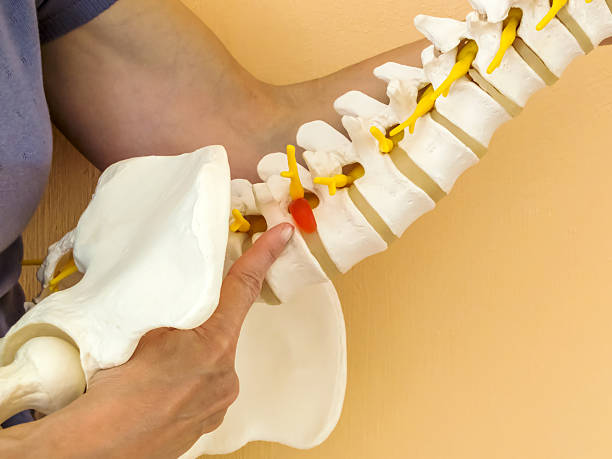March 13, 2023

There is a possibility that you are suffering from leg pain or bladder and
weakness, along with the sensation of numbness. This is a serious condition
which can cause permanent damage, which could include paralysis.
This condition usually occurs in the lower spine and affects a bundle of
nerve roots called the cauda equina. It could be caused by a herniated disc,
tumor, infection, or any other issue.
Symptoms
The lower back is home to a group of nerves called cauda equina (which means
"horse's tail" in Latin). These nerves control movement and sensation in the
legs, bladder and pelvic organs.
They send signals to the brain concerning temperature, pain, as well as
vibration. If the nerves become severely compressed, they can no longer function
properly.
If not treated promptly, CES can cause permanent injury to the legs and
pelvis. This could result in the loss of sexual dysfunction, bowel function as
well as bladder and bowel function.
First, consult your physician. The doctor will review your medical history in
consideration, take an exam of the body and will order a variety of diagnostic
tests.
Diagnosis
The cauda equina, or is a latin word that means horse's tail in Latin is a
set of nerve roots that sits on the bottom of your spinal cord. These nerves
send messages to your feet, legs and pelvic organs, helping to move and feel the
sensations in your lower body.
These nerves may become compressed , causing problems in your bladder,
bowels, or even your legs. These signs are a sign of serious medical conditions
known as cauda
equina syndrome claim.
The symptoms you experience and a physical examination will help determine if
you have CES. The doctor may also perform a rectal examination to check the anal
muscles of your body and determine how they feel when you pass urine.
If you suspect you may have CES then you must immediately visit an emergency
room or hospital. Early diagnosis and treatment could prevent permanent damage,
like paralysis, from occurring.
Treatment
Treatment that relieves pressure and helps nerves heal is usually the most
effective treatment for cauda-equina. If it's left untreated, it can cause
irreparable damage, such as paralysis.
The procedure of spinal decompression is the most popular treatment for
cauda-equina disorder. It relieves pressure on the spine and creates spaces for
the nerves. During this procedure, your neurosurgeon will make an incision
through your back, at the location of compression in order to identify and
remove herniated discs, bone fragments, or tumors that might be pressing on
nerve roots.
It is possible that you will require medication to ease discomfort and
swelling. If the pressure is due to an unidentified tumor, your physician may
suggest chemotherapy or radiation. While you're there, you'll need to visit your
doctor regularly to make sure the situation doesn't get worse.
Prevention
Beware of straining your spine or back to the point that could lead to a
herniated disk is the most effective method to prevent the cauda-equina
condition. This includes bending your knees, lifting objects that weigh a lot
and bending your waist when working.
A herniated disc happens when the gel-like core of the disc in the spine
extends out of an infected area of the disk. Most often, this happens in the
lower lumbar spine (L4 or L5-S1).
In certain cases the disc may press against the cauda equina and result in
symptoms such as numbness, weakness, and loss of bladder or bowel function. The
symptoms can be severe so it is crucial to seek immediate treatment if you
notice these symptoms.
This can be done earlier to relieve pressure on nerve roots that is causing
these symptoms. This can increase the chance of the bladder and bowel
functioning returning.
Posted by: VincentBusiness at
09:31 AM
| No Comments
| Add Comment
Post contains 633 words, total size 5 kb.
35 queries taking 0.019 seconds, 84 records returned.
Powered by Minx 1.1.6c-pink.









